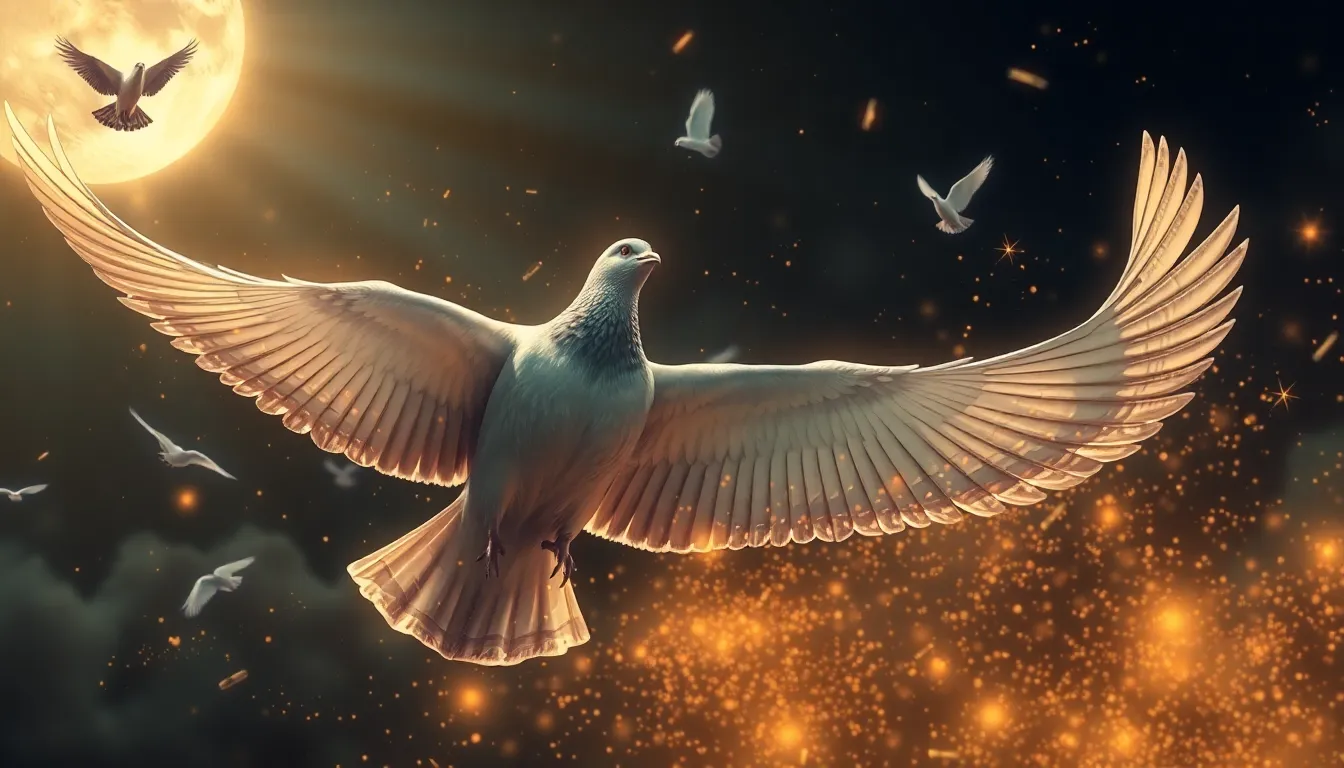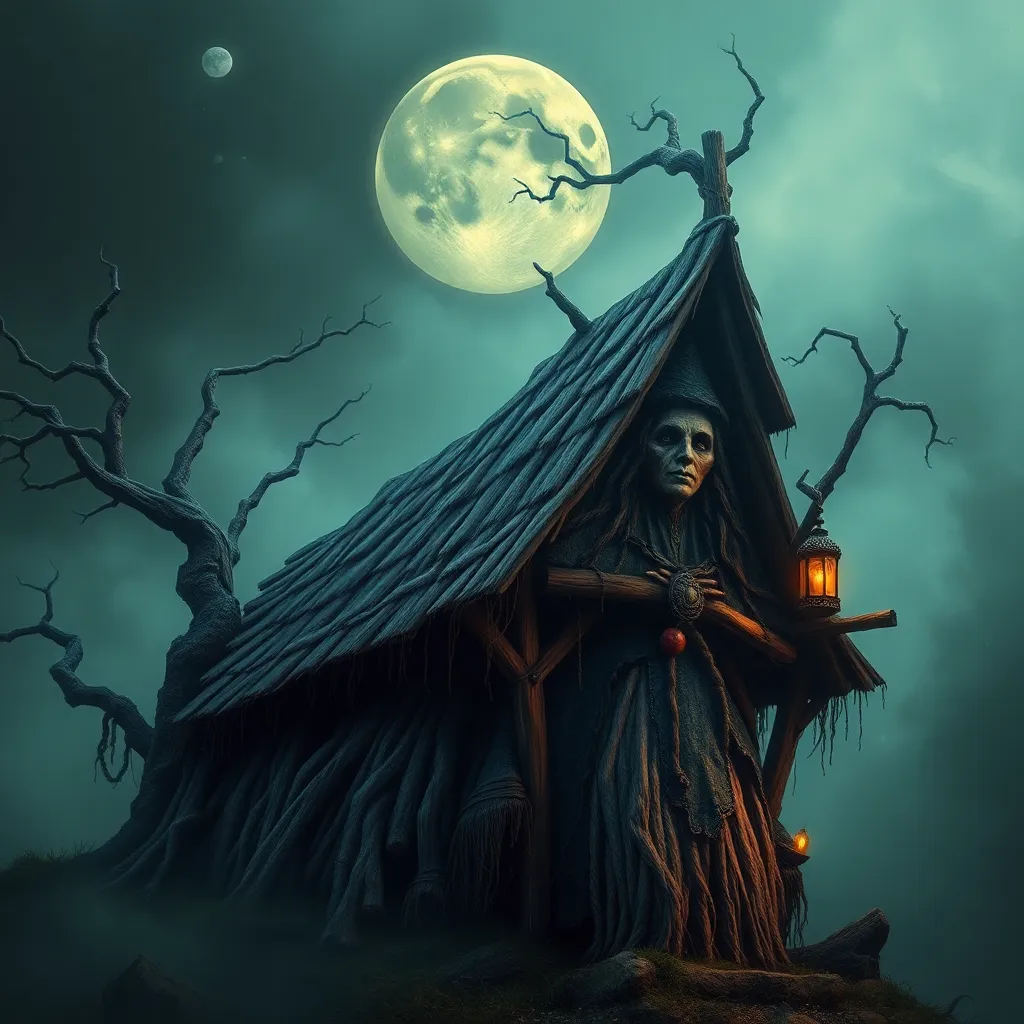The Sacred Pigeon: Messages from the Divine in Folklore
1. Introduction to the Sacred Pigeon
The pigeon is a bird that has captured the imagination of many cultures throughout history. Often regarded as a symbol of peace, love, and communication, pigeons have been revered in various forms of folklore and spirituality. Their presence in urban environments and their remarkable homing abilities have led to a myriad of interpretations and meanings across cultures.
In this article, we will explore the significance of pigeons in different cultures, their historical roles, and the spiritual messages they convey in folklore.
2. Historical Significance of Pigeons in Human Culture
Pigeons have played a crucial role in human civilization since ancient times. Their domestication dates back thousands of years, and they have served various purposes, from companionship to communication.
- Pigeons in Ancient Civilizations: In ancient Egypt, pigeons were often associated with the goddess Hathor, symbolizing love and joy. In Greece, they were seen as sacred to Aphrodite, the goddess of love. The Romans utilized pigeons for messages, showcasing their importance in communication.
- The Role in Warfare: During wars, homing pigeons were used to carry messages across enemy lines, proving vital for military communication. Their ability to find their way home from great distances made them indispensable during World War I and II.
3. Symbolism of the Pigeon in Different Cultures
The pigeon holds a variety of meanings depending on cultural context. Commonly, they symbolize peace and love, but interpretations can differ significantly.
- Peace and Love: In many cultures, a white pigeon is synonymous with peace, often released during ceremonies as a sign of hope and tranquility.
- Contrasting Interpretations: In some spiritual traditions, pigeons are seen as omens, either good or bad, depending on the circumstances surrounding their appearance.
4. The Role of Pigeons in Mythology and Folktales
Pigeons appear in numerous myths and folktales, often serving as messengers between the divine and humanity.
- Notable Myths: In Hindu mythology, the pigeon is associated with the goddess Durga, symbolizing protection and guidance. In Roman mythology, the dove, a close relative of the pigeon, was linked to Venus, emphasizing love and beauty.
- Folktales: Many folktales feature pigeons as divine messengers, conveying important messages from the gods to humans, illustrating their revered status as spiritual guides.
5. The Spiritual Significance of Pigeons in Religious Texts
Pigeons are mentioned in various religious texts, highlighting their spiritual significance.
- Christianity: In Christianity, the Holy Spirit is often represented as a dove, symbolizing peace and divine communication.
- Islam: In Islam, pigeons are considered pure animals, and the Prophet Muhammad is said to have had a fondness for them.
- Hinduism: Pigeons are associated with the soul, often seen as messengers between the living and the deceased.
6. Pigeons as Omens: Good Luck or Bad?
The belief in pigeons as omens varies widely across cultures and regions.
- Good Luck: In some cultures, seeing a pigeon signifies good fortune and blessings, especially if it appears unexpectedly.
- Bad Luck: Conversely, in certain traditions, a pigeon sighting might be interpreted as a bad omen, particularly if the bird behaves unusually.
7. The Connection Between Pigeons and Human Emotions
Pigeons often symbolize deep human emotions, from love to loss, and can serve as powerful spiritual guides.
- Symbols of Hope: Many people find solace in the presence of pigeons, viewing them as messengers of hope during challenging times.
- Personal Stories: Numerous anecdotes exist of individuals experiencing profound connections with pigeons, interpreting their presence as signs from deceased loved ones.
8. Modern Interpretations and Cultural Representations
In contemporary society, perceptions of pigeons have evolved, yet they remain significant in spiritual contexts.
- Contemporary Views: While pigeons are often viewed as pests in urban areas, many still recognize their spiritual symbolism.
- Art and Literature: Pigeons continue to inspire artists and writers, often representing themes of freedom, love, and connection in modern works.
9. Conservation and Respect for Pigeons in Folklore
The ecological importance of pigeons is increasingly recognized, prompting calls for their protection and conservation.
- Ecological Role: Pigeons contribute to the ecosystem by aiding in seed dispersal and serving as prey for various predators.
- Advocacy: Various organizations advocate for the humane treatment of pigeons in urban environments, emphasizing their role in folklore and the need for respect.
10. Conclusion: The Enduring Legacy of the Sacred Pigeon
The sacred pigeon holds a multifaceted significance in folklore, symbolizing divine messages and human emotions throughout history. As we move forward in a rapidly changing world, the enduring legacy of pigeons as spiritual messengers continues to resonate. Their presence reminds us of the interconnectedness of life and the profound messages that nature can convey.
As we embrace the stories and symbolism surrounding pigeons, we find that they remain relevant in today’s society, inviting us to reflect on the deeper meanings of peace, love, and hope.



